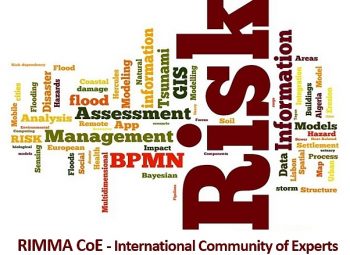After Action Review of the COVID-19 Pandemic
The Lessons Learned and a Path Forward
Final Report of the Select Subcommittee on the Coronavirus Pandemic
Committee on Oversight and Accountability
U.S. House of Representatives
Dec. 4, 2024
Press Release by Committee on Oversight and Accountability, U.S. House of Representatives
https://oversight.house.gov/release/final-report-covid-select-concludes-2-year-investigation-issues-500-page-final-report-on-lessons-learned-and-the-path-forward/
Report, 557 p.
https://oversight.house.gov/wp-content/uploads/2024/12/2024.12.04-SSCP-FINAL-REPORT-ANS.pdf
———————————————————————————————————————
remarks:
As to be expected, investigations of such Committees especially are interested in clarification of complex amounts of Information Management issues.
RIMMA CoE members and further colleagues may be interested in (selected) topics listed below.
For details related to your special interest please screen the full report.
Page numbers listed are those in the printed version of the report, not the consecutive page numbers in Acrobat Reader because of a considerable number of introductory pages and content overview numbered separately.
Many of those issues also apply to other types of disaster, so many principles of these investigation apply in different incidents.
Selected topics:
Evading the Freedom of Information Act
metadata, electronic records, and the laboratory notebook
Virus Experiments – International Cooperations / cross-border funded projects outcomes
Legalities of Ownership of (cross-border) Information
106
Data Export Control
113
no regulatory or ELSI discussion
ELSI https://pmc.ncbi.nlm.nih.gov/articles/PMC11412540/
how much money was lost during the pandemic compared to traditional UI programs
1.155
States failed to cross-check claims against critical databases to ensure applicants were not filing in multiple states, incarcerated, or flagged as high-risk for fraud1.
156
Federal and state agencies had significant lapses in coordination, insufficient resources for oversight, weak data sharing and reporting mechanisms, and delays in enforcement and accountability for pandemic relief programs. Federal and state agencies must be held accountable for the billions of dollars lost due to their flaws in oversight.
- 166
According to the Fraud Risk Framework, a leading practice in fraud data analytics is to conduct data mining and matching, including cross-checking of data using external data sources to validate information. This includes the DNP list, which had its own flaws and lacked sufficient information to conduct oversight.
Most federal agencies at the time of the pandemic still had legacy IT systems in place to catch and control improper payments
- 169
There Was No Quantitative Scientific Support for Six Feet of Social Distancing.
- 198
Publishing „out-of-facility deaths“ data – drafts, decisions, remove, …
- 237 ff
Also refer to the “July 6 Report” https://health.ny.gov/press/releases/2020/docs/nh_factors_report.pdf
Auditing Data for any Inconsistencies or Discrepancies
- 260
Transparency in Sharing the Data Collected
- 355
etc.
You notice recently intensified discussions on the COVID-19 Pandemic review in your country?
Consequences? “Lessons Learned” ? or “Lessons Recognized” ? (note the difference)
While the Public may misinterprete the term “Lessons Learned” in a too optimistic way, the actual structured and general implementation of these
“Lessons” for follow-up disasters should be mandatory.
Compiled progress vs. failure of implementation should be publicly reported periodically.
National report of similar official kind available in your country? – please share (cf. Post-Incident documentation compiled https://rimma.org/post-incident-reporting )
Your UN Sendai Framework National Platform (“all-of-Society” par. 27(g) ) is dealing with / working on post-incident issues? – please share
Horst Kremers
